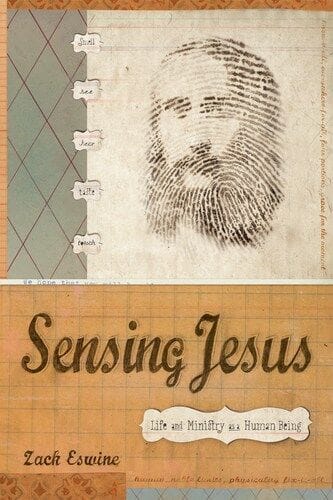Top Quotes from Sensing Jesus

If you are a pastor, I can’t recommend Sensing Jesus by Zack Eswine enough. It gets at the heart of my idolatries, which is why I need to read it regularly. It reminds me of Eugene Peterson’s pastoral books, and The Art of Pastoring by David Hansen. This, my friends, is a compliment.

Here are eight of my favorite quotes from Sensing Jesus:
On looking to upgrade our ministries — Therefore, those of you searching for something larger, faster, and more significant, who feel that if you could just be somewhere else doing something else as somebody else, then your life would really matter— Jesus has come to confound you. (p. 40)
On our desire for celebrity and advancement — He alone is the famous one. Jesus values waiting, not haste. His views regarding what it means to advance often have little to do with changing positions, sizes, or geographies. How then do we find strength and joy for the long smallness we often endure and feel? (p. 172)
On our desire for greatness — Our goal of greatness isn’t the problem. How we define the word great is. (p. 37)
On learning our limits and relinquishing our dreams — To relinquish; to admit that some dreams are presumptuous; to acknowledge that some needs outlast me; to recognize my inability to fully supply what is lacking; to admit that I am limited; to say no to competition with brothers and sisters, and to give to others what I strongly desired for myself; and in it all to still take up the pen or give voice to preach Jesus— these indicate a surrender to noble limits. (p. 19)
On the fact we’ll be forgotten — God is the remembered one. But this does not mean we are forgotten— not by him. Not by a long shot. In fact, being remembered by him means we no longer fear being forgotten by the world. Living humanly within his remembrance is enough. (p. 19)
On greatness and humanness — Greatness, even in ministry, cannot escape humanity. How did I ever begin to assume that it was supposed to? Being human does not mar greatness; it informs it and sets its noble boundaries. (p. 30)
On feeling out of our depth — We concluded that if we were to say to God, “Father, I constantly feel out of my depth,” God would gently ask, “And why is that a problem?” (p. 36)
On the ways we lead the church — Many of us in ministry and family leadership hastily dynamite our way through obstacles and people. We create well-respected and efficient organizations and homes but leave a trail of persons and places obliterated in our wake. Ironically, we often unnecessarily hurt people in the name of building God’s organization and doing God’s work. (p. 155)
My copy of Sensing Jesus is dog-eared and marked. It’s one of those books that I need to read when my motivations for ministry get out of whack. In other words, I need to read it often.






